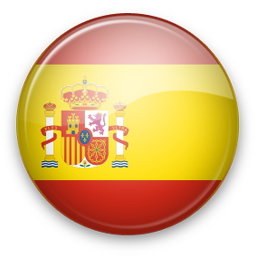|
- - -
Spain
BASIC INFORMATION ABOUT THE GOVERNANCE OF SCIENCE IN SPAIN
Spain's National Research, Development & Innovation Plan 2004-2007 marks an important step forward in planning actions financed by the national budgets aimed at optimising available resources by strengthening cooperation and coordination with the Autonomous Communities (Spanish regional governments), articulation of the important international dimension and design of the financial instruments and modes of participation needed to stimulate and foster research, development & innovation activities.
Building the European Research Area poses new challenges for integration and coordination, not just as regards developing mechanisms for the creation of networks under national programmes, but also in relation to the initiation of evaluation processes that facilitate comparison of national research, development & innovation policies.
This National Research, Development & Innovation Plan is the public sector's response to the economic, social and cultural demands regarding S&T matters. Defining scientific-technical research programmes, preparing proposal for managing government-funded activities, developing business competitiveness support measures, organising international and interregional cooperation programmes, and developing appropriate policies for training and recruiting research, development & innovation specialists, has required involvement of all actors in the system.
S&T COOPERATION BETWEEN SPAIN AND BELARUS
Since 2001 through the Calls of Belarusian Republican Fund on Fundamental Research (BRFFR) 3 Belarus-Spain research projects bilaterally financed have been and are being fulfilled.
The main funding opportunities currently open for science and research cooperation between Belarus and Finland relate to the EU programmes, namely the Seventh Framework Programme (FP7). (See chapter on European Community Research).
WHERE CAN I FIND MORE INFORMATION?
National Nuclear Security Council (Consejo de Seguridad Nuclear) http://www.csn.es
| National Research Council (Consejo Superior de Investigaciones Cientificas) http://www.csic.es
Centre of Research and Technology for Energy and Environment (Centra de Investigaciones Energeticas, Medioambientales у Tecnologicas) http://www.ciemat.es
Ministry of Education and Science (Ministerio de Education у Ciencia) http://www.mec.es
Ministry of Industry, Tourism & Commerce (Ministerio de Industria Turismo у Comercio) http://www.mityc.es
Centre for Technological & Industrial Develop-' ment (Centra para el Desarrollo Tecnologico Industrial) http://www.cdti.es
National Institute for Aerospace Technologies (Instituto Nacional de Tecnica Aeroespacial) http://www.inta.es
Centre for Hydrodynamic Research (Canal de Experiencias Hidrodinamicas de El Pardo http://www.cehipar.es
Spanish Institute for Oceanography (Instituto Espaftol de Oceanografia) http://www.ieo.es
National Institute for Agricultural & Food Research (Instituto Nacional de Investigation у Tecnologia Agraria у Alimentaria) http://www.inia.es
Institute of Astrophysics of the Canary Islands (Instituto de Astrofisica de Canarias) http://www.iac.es
| National Energy Commission (Comision Nacional de Energia) http://www.cne.es
Spanish Polar Committee (Comite Polar Espaftol) http://www.mec.es/ciencia/comPolar
Scholarships (Becas) http://www.mec.es/ciencia/becas
http://www.becasmae.es
Spanish Embassy in Moscow (Embajada de Espafta en Moscu) http://www.maec.es/Embajadas/moscu/es/

© National Academy of Sciences of Belarus, 2011
|
|


